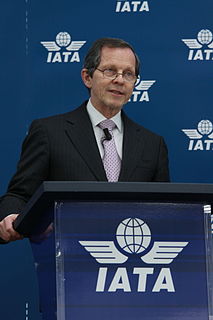A Quote by George Soros
Giving government aid to a bank basically transforms it into a utility. The huge salaries in this sector are only a symptom of a more profound misalignment. The profitability of the finance industry has been excessive. [...] That was absurd.
Related Quotes
70 to 80 percent of country economy is controlled by the Bolivian state, and the other percentage by the private sector. We admit that it's legal, constitutional, that the private sector is entitled to its own economy, but to ensure these profound changes that clearly this government is promoting, including profound changes in the food industry, what we are doing is an important step.
If bankers can push the loans and make more profits for the bank, they get paid higher bonuses. They often also get stock options. If the bank goes under, they get to keep all of these salaries and options - and the government will bail out the bank. These guys will take their money and run, which is pretty much what they're doing now.
Uganda's budget is 40 percent aid-dependent. Ghana's budget is 50 percent aid-dependent. Even if you cancel the debt, you don't eliminate that aid dependency. This is what I mean by getting to the fundamental root causes of the problem. Government, the state sectors in many African countries need to be slashed so that, you know, you put a greater deal of reliance on the private sector. The private sector is the engine of growth. Africa's economy needs to grow but they're not growing.
Private sector unionization is down to practically seven percent. Meanwhile the public sector unions have kind of sustained themselves [even] under attack, but in the last few years, there's been a sharp [increase in the] attack on public sector unions, which Barack Obama has participated in, in fact. When you freeze salaries of federal workers, that's equivalent to taxing public sector people.
Abraham Maslow said that the fully realized person transcends his local group and identifies with the species. But the election of Ronald Reagan might've been the beginning of my giving up on my species. Because it was absurd. To this day it remains absurd. More than absurd, it was frightening: it represented the rise to supremacy of darkness, the ascendancy of ignorance.
Republican leaders have made clear they have no plans to use the power of government to stimulate the economy, invest in job creation and spur job growth. The Fed's plan is to give banks more money to finance the private sector job creation. But banks have ample cash now; they aren't lending, and the private sector is not creating the jobs. That is why we have 15 million people unemployed.


































